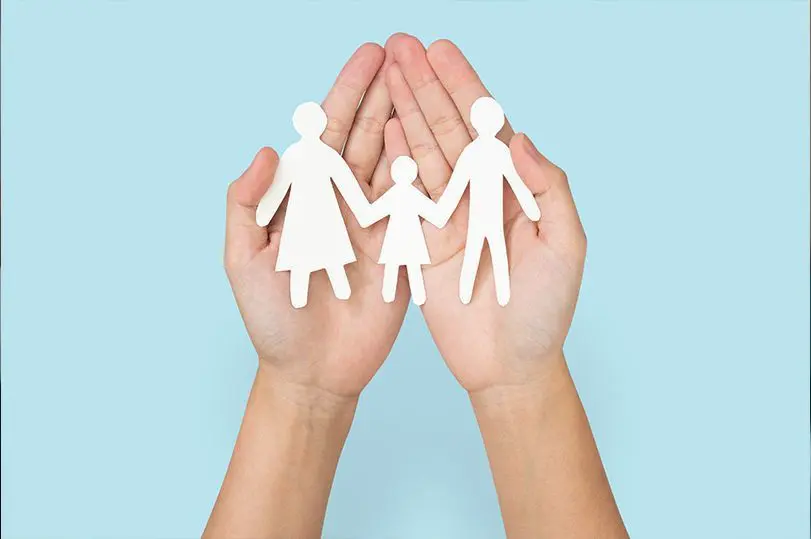We figure out how to find a common language with a modern child
Within the framework of the national project “Education” in Russia, there is a system of psychological and methodological assistance to parents, which can help in general issues of raising and educating a child. The specialists of the consulting centers, which are opening throughout the country as part of the national project, are ready to answer any question of parents free of charge. You can find such a center on the portal rastimdetey.rf in a single navigator in the section “Services to help parents”. Also, here are collected the best parenting practices: all information is divided by the age of children, so that it is easier for parents to find exactly those articles that relate to their child. Svetlana Lazurenko, Corresponding Member of the Russian Academy of Education, Head of the Center for Psychological and Pedagogical Assistance in Pediatrics, National Medical Research Center “Children’s Health” of the Ministry of Health of the Russian Federation, answered the most popular questions of the portal “MK”.
A modern child – how does he differ from children born 10–20 years old, his main hobbies?
There are several theories describing the social and psychological differences between generations from each other. In the early 90s, Western historians, together with psychologists, substantiated the theory that every 20 years the young generation of people is characterized by special personal and behavioral properties. That is, changes are determined to a greater extent by the time period, and not by social or other external factors. But there are other theories that say that the lifestyle and value orientations of young people are influenced by political, economic and other factors, not time.
For example, the technological process now plays a significant role, in particular the emergence of the Internet, virtual and augmented reality, the rapid development of various scientific fields: medicine, physics and chemistry, energy, computing. Children can operate with such technical means that did not exist before. Thanks to them, cognition of phenomena and communication, data exchange occurs rapidly. The new structure of the world and the means of interaction between people affect the development of the child’s personality, determine the values, beliefs and motives by which he is guided. Of course, differences remain, due to the existing national and cultural diversity, age needs and opportunities. However, most scientists agree that innovative inventions, the development of digital and information technologies have led to the fact that modern children can and want to get results from their efforts much faster than representatives of the older generation, they are more independent in search, decision-making, and are more free … The reason for this is the availability of tools and social opportunities for self-expression. At each stage of the development of civilization, a new generation of people expands the boundaries of their influence and control of the situation, not as “scripted” as generations earlier. A certain proportion of children actively use these benefits and achieve success, while others cannot take full advantage of the cultural achievements of humanity, for them they represent a way to satisfy situational desires and interests, solve pressing problems and get a variety of impressions. The latter become dependent on technology and often refuse the possibility of full-fledged social realization; they are distinguished by a tendency to seclusion and an inability to establish strong social ties, to maintain friendly, emotionally warm relationships with peers and older people. Their free choice is to enjoy the benefits of civilization, leading an isolated lifestyle, without bearing the burden of responsibility for another and without being motivated to achieve social success or recognition. Today, such an opportunity exists, being among people, without leaving society, to distance ourselves from it and, enjoying freedom, to do what you love for pleasure.
I would like the freedom that is now available to children to contribute to the acquisition of knowledge about themselves, an understanding of their capabilities and limitations, desires and goals. But in this intense information flow and arsenal of possibilities, everything happens the other way around. Constant activity, a fast pace, a change in the picture leads to the formation of a clip consciousness, where children get lost and cannot figure out what they are guided by in doing this or that act, who they are, what true desires they experience. The danger lies in the fact that in the end they fail to find their identity, choose their professional path and fully reveal their creative potential. All this leads to an increase in depression and neuroses in the child population, an increase in the number of adolescents who are dissatisfied with life, seeking thrills and prone to risky behaviors. Parents should be attentive to the emotional state of the child and, in the event of apathy, lack of interest, or isolation, seek help from professionals.
There is a single navigator for parent support counseling centers on the rastimdetey.rf portal. The portal also contains the best parenting practices. All information is divided by age of children, so that it is easier for parents to find exactly those articles that relate to their child. The site contains audio and video materials, courses of lectures and webinars for parents, lists of recommended books, films and cartoons that can be watched with children.
What if, apart from social networks and games on the phone, the child is not interested in anything else? Is it worth sounding the alarm, and if so, what moment should be considered critical (when the child does not “stick” from the smartphone for how many hours)?
A social network is a form of communication or getting new impressions, an opportunity to observe the life of others with any degree of participation. A gadget is a game of easily accessible thrills and emotions. A modern smart electronic device contains a huge variety of possibilities and can have a strong sensory effect: visual, in the form of a picture, changing and vivid, acoustic, in the form of a variety of sounds, emotional, due to an exciting plot or event. With its help, the child receives emotional saturation, which he can find in few other places. It is this innate human need for sensory saturation and emotional diversity that the gadget satisfies. In this case, the child does not need to do anything difficult. Except for a simple sequence of movements that is easy enough to remember. The parents of a modern child did not have such gadgets in childhood. And they often do not understand the dangers of this “harmless” toy, which gives emotional saturation to their child, forming the habit of achieving pleasure and emotional fulfillment without having to do anything, without making any effort. More often than not, when a parent offers a phone to a child, this is in return for an activity. At the moment when they have no time, they want to make the child invisible and stop wasting their precious time on him. In this case, the gadget helps them replace everything: communication, play, drawing, construction, physical activity. We all know how quickly parents start using this whenever they can. The main thing here is not the frequency itself, but the moments when parents do it. Usually when the child is tired or bored. Both of these conditions can be characterized by the word “bad”. Thus, very quickly, the child becomes in the habit of correcting the situation with the help of a gadget when feeling discomfort. A smart toy becomes a kind of “pill” or remedy for fatigue, bad mood, any negative emotional state.
It replaces a friend and any kind of activity, especially when the child has not developed the habit of performing and enjoying any activity.
It’s another matter when a gadget is used as one of the ways to organize useful leisure. Therefore, parents need to ask themselves questions: how often and for what reason do they use gadgets? If, for example, a preschooler learns something new from a cartoon or an educational game, works out his drawing or construction skills, that’s great. It is not in vain that a team of highly qualified specialists develops a huge number of developmental programs, games and technologies. Another example: a teenager uses them to communicate with friends in moments of separation, which allows him to satisfy the need for interpersonal communication. And if he does not have friends, but only social networks in the absence of live communication, this is no longer very good. The same difference between the fact that a child searches for about an hour in the computer in order to find important information for preparing for a lesson or gambling, spending endless time on this and not receiving anything to feed emotional saturation, often to the point of emotional exhaustion. In short, the gadget should not replace all types of children’s activities and be the only means of social communication with peers and emotional saturation.
The website rastimdetey.rf contains a complete list of centers operating in a particular region, with contacts of online receptions. When contacting there, you can get qualified help from specialists. Counseling centers operate free of charge and are available to everyone.
How to get your child to use useful apps instead of wasting time on useless toys?
Let me pay attention not to eliminating addictions, but to talk about preventive measures. Today, a parent, each time holding out a gadget to a child, must understand that in large doses it turns from a useful tool into a means dangerous for the child’s health, like high-calorie food or fast food, harmful, but tasty. The more you eat, the more you want. We need to think that instead of a gadget, we can offer an activity or occupation that is more necessary and effective for the child. Choose the content you offer. It must be carefully thought out and carry some kind of developmental effect. Now there are a huge number of different applications that benefit a child. After watching a movie or cartoon, talk to your child that he just saw, how he took it. Regularly organize family conversations and evenings where they discuss values and traditions, the concepts of “good” and what is “bad”, new experiences and experiences of each family member, support and participate in each other’s life.
There are, of course, hygiene standards. These are fairly short sessions, up to 5 minutes for a young child, up to 15 minutes for a preschooler, for a primary school child – 30 minutes of content. For more time, children cannot perceive information statically with the help of a gadget. Parents can get recommendations and advice on the regime and rules for the use of electronic devices on the portal “Raising Children”, created within the framework of the national project “Education”, as well as from other literary sources, including the website of the Ministry of Education, information portals for parents that have been created at pedagogical and psychological universities, centers of psychological and pedagogical assistance.







